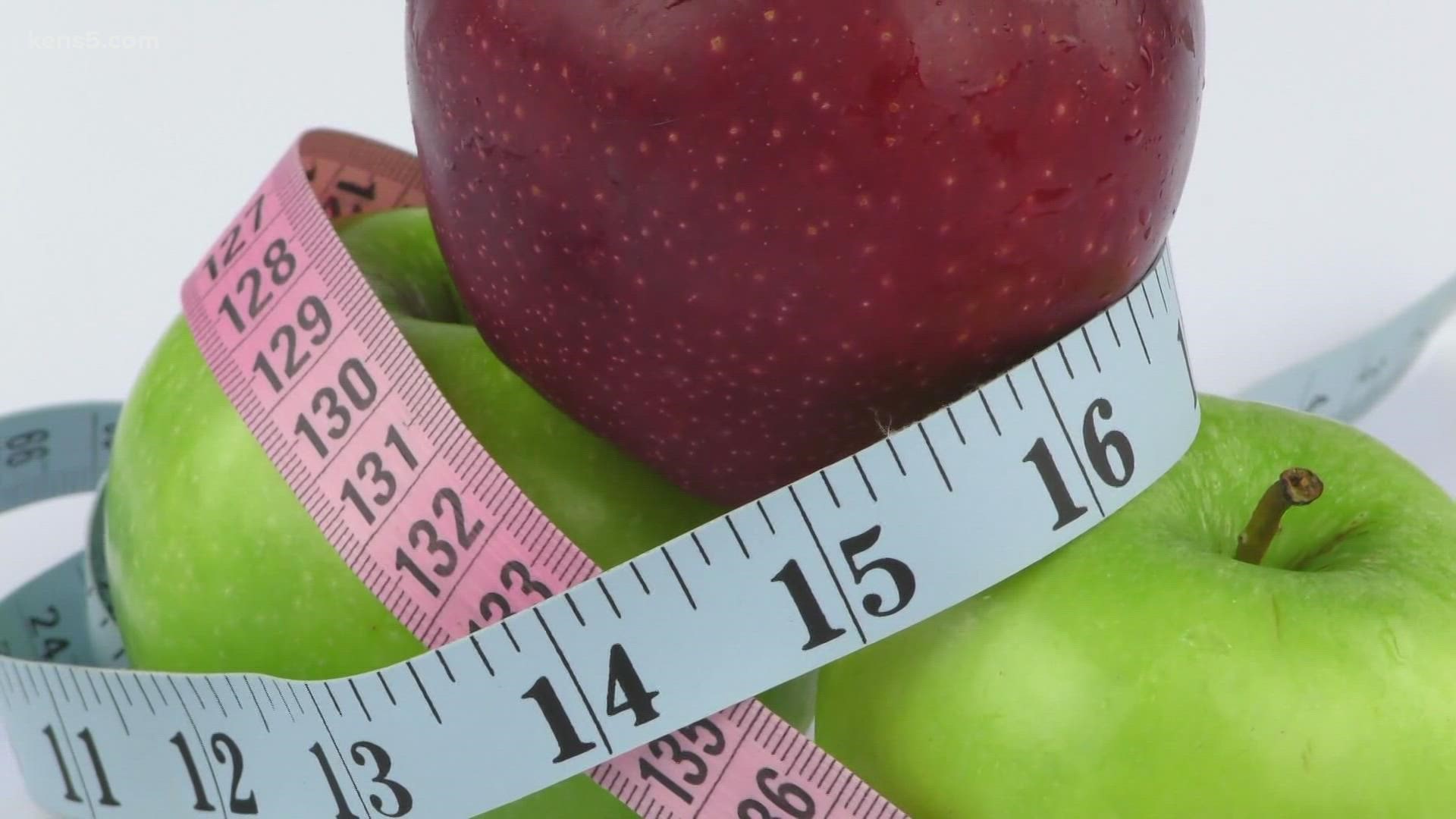SAN ANTONIO — Once the holidays are over, many of us will be trying to lose some weight. More will fail than succeed, but is that because we aren't going about it the right way? Here we take a look at a popular trend called intermittent fasting.
Statistics show that 19 out of every 20 people fall short in their dieting efforts, and half of the weight we gain happens during the holidays. If you're looking to shed a few pounds, intermittent fasting may be for you.
So what is it? For that we turn to Brenda Morgan, a personal trainer and owner of the wellness business "A Health Warrior." She described the practice of intermittent fasting as "not eating at certain times of the day when you choose not to eat, or you can choose certain days that you don't eat."
Morgan claims it's more efficient than simply cutting back calories because it gives the body a chance to repair itself.
Dr. Vidhya Illuri, an endocrinologist with the Texas Diabetes Institute within University Health, said the benefits of the weight-loss method come down to the individual.
"I think we all have to think about what our motivation is for intermittent fasting," Illuri said, adding that even though it could be a good way to lose weight, other problems could develop. "I think a lot of people are doing it for quick weight loss. And I can see that as problematic if it creates disordered eating."
For some it can even become downright dangerous.
"If you get into the cycle of fasting and binging," Illuri said.
According to Diet vs. Disease, by skipping breakfast most people will save about 500 calories. Studies show that those who intermittently fast lose 4 to 7% from their waist circumference over six months.

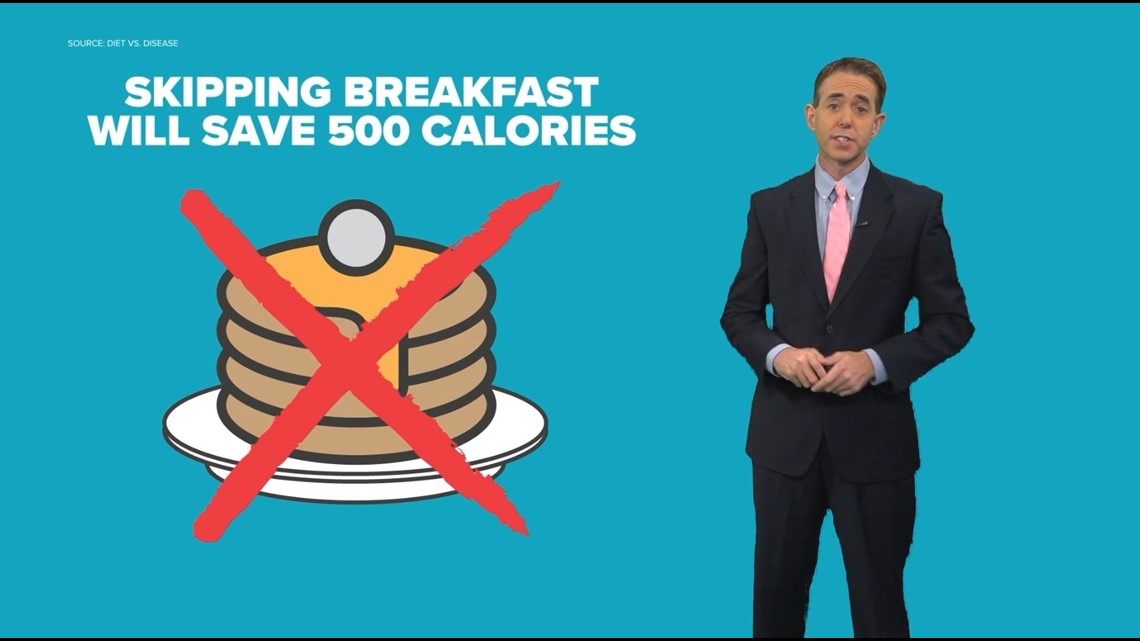
Morgan says fasting can even boost your brain power.
"It increases brain-derived neurotrophic factor, which basically is making your brain work better," she said.
There are several different types of intermittent fasting you can follow:
1. The 16/8 method, in which you fast for 16 hours and eat only during a daily eight-hour window.

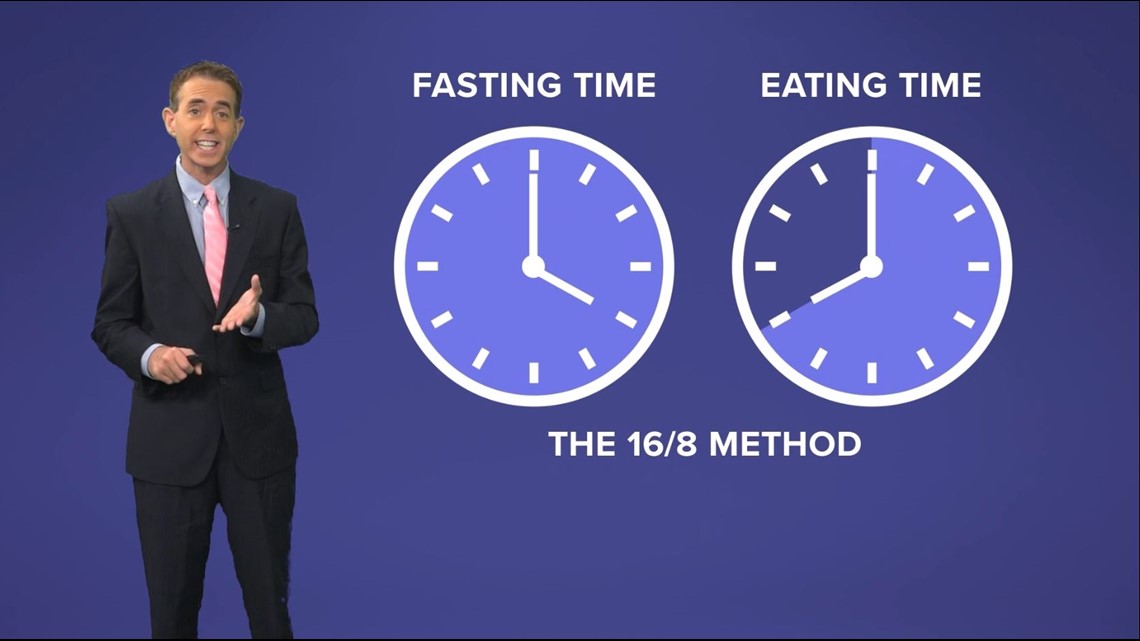
2. The 5:2 Diet, in which you eat regularly for five days and only 600 calories on each of the remaining two to finish out the week.

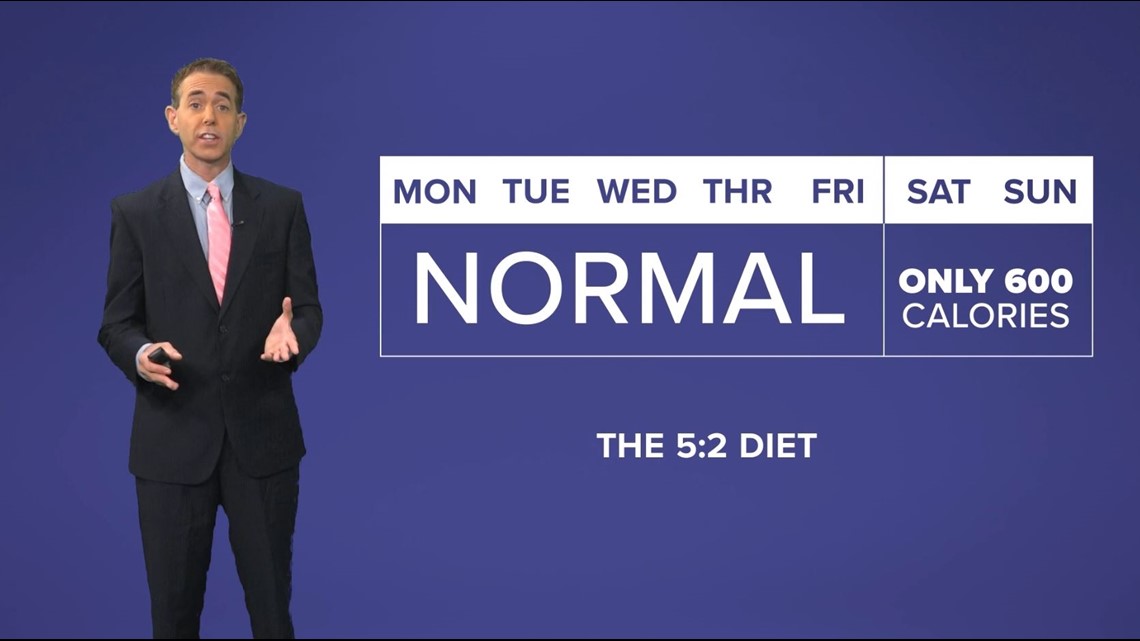
3. Spontaneous Fasting, in which you fast for a 12 or 24-hour period multiple times each week.

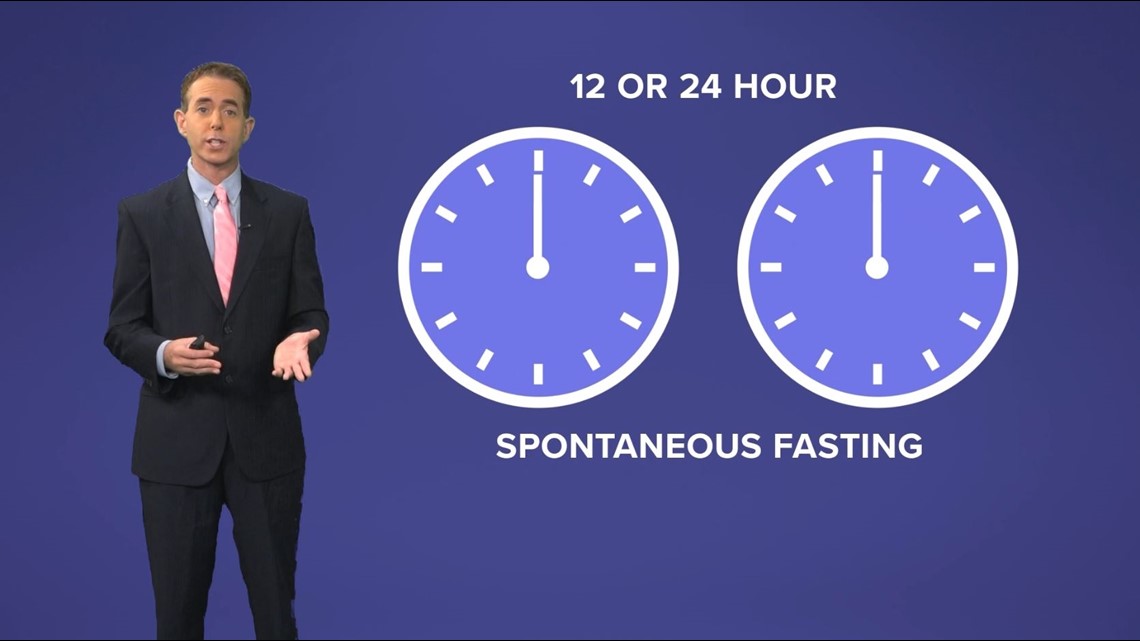
4. Alternate Day Fasting, in which you fast for one day and eat normally the next, sticking to that pattern.

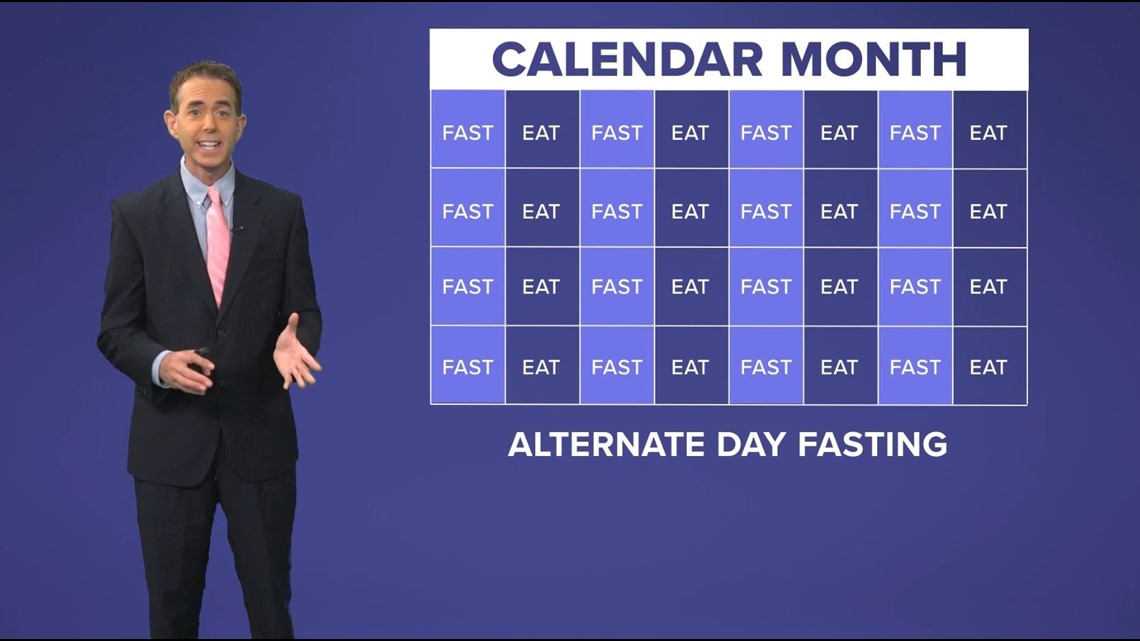
Valerie Romo began intermittent fasting two and a half years ago.
"I was having a lot of stomach issues, so I went and saw a gastro doctor and he was the first person to introduce intermittent fasting to me," Romo said.
She landed on the 16-hours-a-day fasting method.
"It doesn't mean that you have to stick to every day. I'm just going to eat between 12 and 8. You can change it up."
Jessica Regalado follows a method similar to Romo. She lost over 50 pounds, and even started a Facebook group to help other women called "Blessing Sisters Intermittent Fasting."
"We just literally just support each other and give tips on intermittent fasting," she said.
If you're able to skip a meal with no complaint, want to lose belly fat, spend less on food, do less cooking and cleaning, and even use the bathroom a few times less each week, intermittent fasting may be for you.
But, Illuri emphasizes it's important to speak to your health care provider first.
"Make sure that you talk to your doctor if you're thinking about starting a different nutrition plan or diet," she said.

